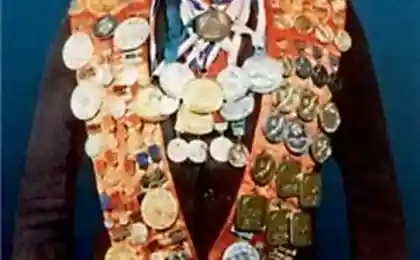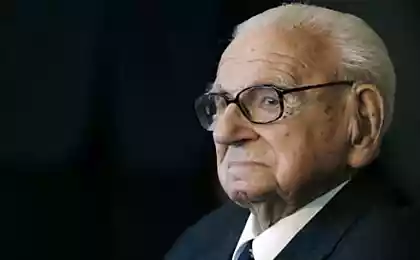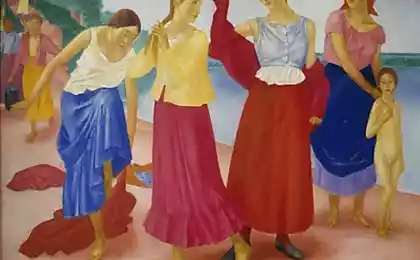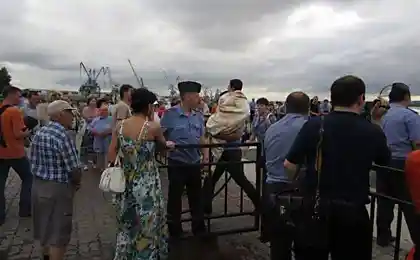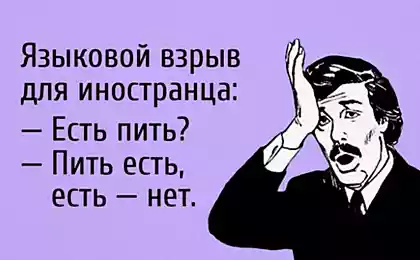537
About "Russian" the Japanese and the thousands of lives saved
Orthodox Japanese, Sugihara Tiune included Israel in the list of "righteous among the Nations". In the history of his life fancy mixed Japan and the Soviet Union, Lithuania and Israel, the white emigration and the Caribbean colonies, war and peace, the interests of the countries and the fate of ordinary people. And still, it's primarily about how just to be a man.
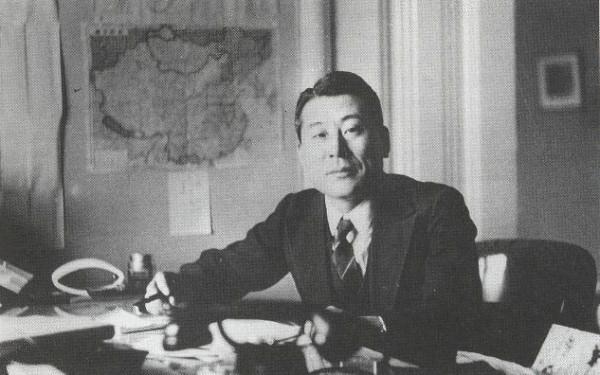
A little stubborn, Tiune Sugihara was born on the first of January, 1900. He was the second son in the family physician of the Japanese town Yaozu. Besides, it grew four more brothers and a little sister. It is obvious that the main way to survive for Japanese from a poor but prolific family was one – to get an excellent education and make a successful career. And until then it seemed that little Tune this rule is followed.
The boy graduated from elementary and then high school. The father insists that the Tiun became a doctor. It even send exams to the medical College. But a little stubborn them brilliantly... fails. After serving the allotted time for the party, he just rents the teachers signed your name to a blank sheet.
Tina want to study European culture. He entered the University Vaseda at the Department of English literature. However, it is the boy quarrel with his father. Devoid of any support, now he has to pay for his education himself. Forces to study and work simultaneously have Tune enough for a year.
But then fate gives a little stubborn strange chance.
Russia Ministry of foreign Affairs of Japan opens in Harbin Russo-Japanese Lyceum. At this time, Japan's active economic activities in China, constructing railroads. Interested in the Japanese and the Russian far East.
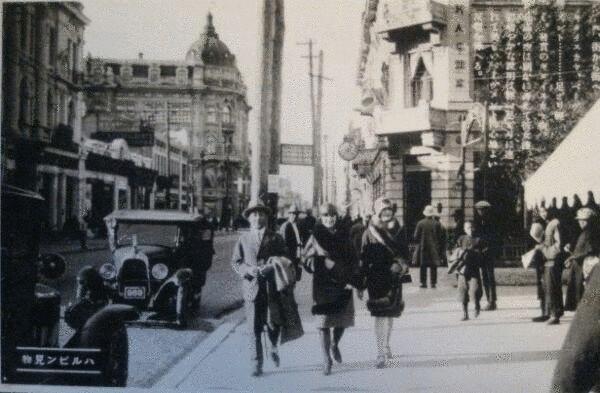
Sugihara in Harbin
So the Japanese government needed employees with knowledge of the Russian language. Need so much that decided to elect a new specialty it was ready to pay scholarships. So a poor student, Tina was a student of the Lyceum. So it became clear that its Europe – Russia.
This does not mean that Sugihara has ceased to be Japanese. He brilliantly graduated from the Lyceum, serving in the army, and then receives a distribution in the Japanese Ministry of foreign Affairs. In the early 1930s, when Japan annexed part of Manchuria, Sugihara it is negotiating with the Soviet Union on the purchase by Japan of the Chinese Eastern railway. And leads them so brilliantly that bargains for his country about a million dollars at the exchange rate at the time.
As a result, "nasty Japanese" gets even "pencil" to the Soviet authorities. Among other things, because a lot of deals in Harbin by Russians. In 1924, he even married the daughter of a white officer Claudia Apollonova. And the marriage lasted eleven years.
But one of the more strange his action Sugihara made just before the wedding. ... He converted to Orthodoxy.
Information about what name he was baptized, Tune vary. Most sources agree the name "Sergei Pavlovich," and adds that the priest of the Church Abroad, who baptized the Japanese name was father Paul.
On your baptism and told the second wife Sugihara – Japanese woman Yukiko that appeared in his life after Claudia Apollonova they decided to leave. Subsequently, Yukiko (baptized Maria) wife gave birth to four children and survived him for many years.
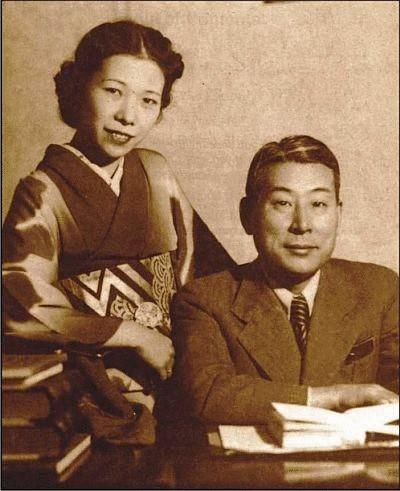
The Soviet Union: the first attempt it Seems that the life of the Japanese is getting better: post in the Japanese Embassy in Harbin, in the name of diplomacy, the important things. But all this time he deals with white Russians, and... creating orphanages for Chinese children left without parents after the Japanese invasion of China. Moreover, in protest against ill-treatment of prisoners of war in 1936, Tina resigns and returns to Japan.
However, for the government by this time he already is very valuable. And the world is gradually realize that in the near future will start another war. And to monitor its prospects of Japan need our own people in the Soviet Union. And such a person – with knowledge of Russian, and by that time, and German languages — she has.
In Japan, Tune waiting for a new assignment – a translator at the Japanese Consulate in Petropavlovsk-Kamchatskij, and then even in Moscow. And then the unexpected happens: in Moscow a diplomat... is not allowed, he just did not give a visa.
The Ambassador of Japan requires, for this reason an audience with the foreign Ministry and, oddly enough, receives it. How then receives the document, three pages were listed in detail the claims of the Soviet authorities to the Sugihara connection with the whites, Japanese intelligence (both were true) and "anti-Soviet mood" (so, obviously, interpreted his participation in the transaction by the CER).
In the end, instead of the Soviet Union, Sugihara was assigned to Finland, and in August 1939 a new – to Kaunas, then the capital of independent Lithuania. In Lithuania at that time there lived no Japanese and was not with Japan, no cultural ties. It is obvious that the main business owning the right languages, Tiona was to collect data about the situation in Europe. This he very successfully been doing, and later even called his leadership the exact date of the German attack on the Soviet Union.
However, on 15 June 1940 Lithuania became part of the Soviet Union. In July, the diplomatic representatives of third countries was proposed to leave the new Soviet territory. But Sugihara turns to the authorities, so he extended the period of stay in Kaunas for another month. And this month, he manages to carry out the main business of his life.
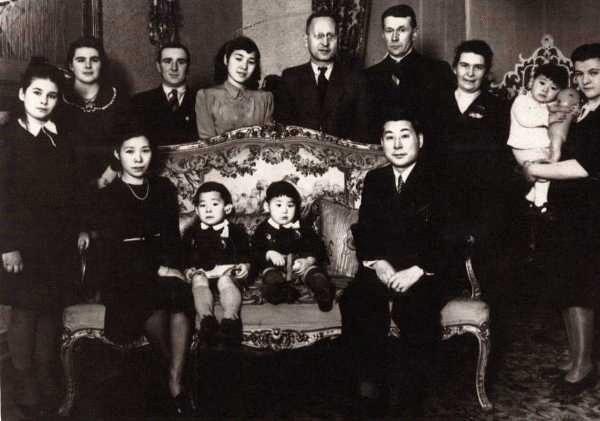
The main business of life I Must say that by the beginning of 1940 in Lithuania were many Jewish refugees. German troops attacked Poland, and most of the Jews had begun to understand that under German orders, their fate is unenviable. However, when from the East the territory began to join the Soviet Union, people are trapped.
To obtain the Soviet citizenship religious Jews were not in a hurry (and many of those who do decide to get it, was then sent to Siberia). Different countries, one after another refused them entry, so in the end, had to resort to complex combinations.
Was first found by a Dutch diplomat in exile, who still disposed of overseas territories. In particular, he agreed to give everyone a paper saying that to enter on the Dutch island of Cura? AO and Suriname do not need any visas. But without permission to get to them on the territory of the Soviet Union, and then Japan paper this was useless.
Then found the Soviet Consul, who also agreed to arrange a transit for everyone. It remained for the Japanese visa. The results of these documents would justify the presence of Sugihara in Lithuania, while the authorities have long insisted on his speedy departure.
The difficulty was that in the impending war, Japan became an ally of Germany. That is, the Japanese authorities had plenty of reasons not to allow anyone to leave Lithuania. And, of course, none of them were configured to host several thousands of refugees, which, of course, is not going to actually together to go to small Suriname.
Once at home would have known about the "documentary liberty" Consul, Sugihara risked to answer for them in full. But the family had by that time four children.
The Japanese diplomat, without a doubt, understand all of this and, as usual,... went on his own way. In August 1940, they were issued more than two hundred thousand Japanese transit visas.
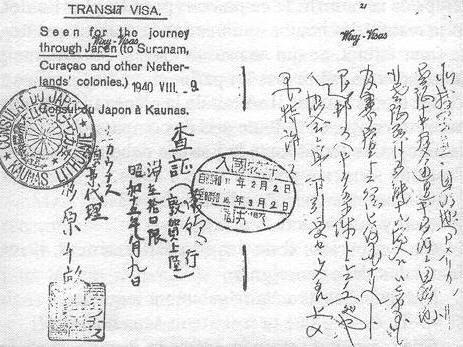
Visa signed by Sugihara
According to the rules of that time, he discharged them from their hands. Sometimes on letterhead, sometimes on the half of the entry permits issued by the Dutch. When the forms ended, Sugihara wrote on clean sheets of paper. The whole month he wrote sixteen hours a day. And when the time is ended, he just left the consular seal to the window of his departing train. Picked her up.
Visa was issued on the family, so that the documents signed by Sugihara, Lithuania was able to leave, according to various estimates, from five to ten thousand people. Many of them then made it safely to America and Australia. These people were saved.
Downsizing the fate of the Japanese diplomat were much less successfully. From Kaunas, he went to Prague, then to Konigsberg. In the end, Sugihara finds himself in Bucharest, where he is arrested by the Soviet command. A year and a half, former Consul and his family spent in the camp for diplomats in Romania. Home, Tina gets only in 1947.
Japan surrendered at this time control of the US government. The country banned (and still is) to have its own army, diplomatic representatives no longer need it. In the end, Sugihara receives a letter of resignation from the foreign Ministry "for redundancy".
As a result the person, in whose hands was millions of dollars and the fate of the world, is taken over the random part of the tutor and the interpreter, sells light bulbs Hawking. At the same time, the couple bury one of his sons.
In the end, Sugihara, who for the sake of this I had to change the documents and now read his name as Sugiwara, gets the job done in the representation of private company in Moscow. The company sells Japanese sewing machines, nylon and BolognaFiere cloaks.
Sugihara did not know that all this time he stubbornly looking for...
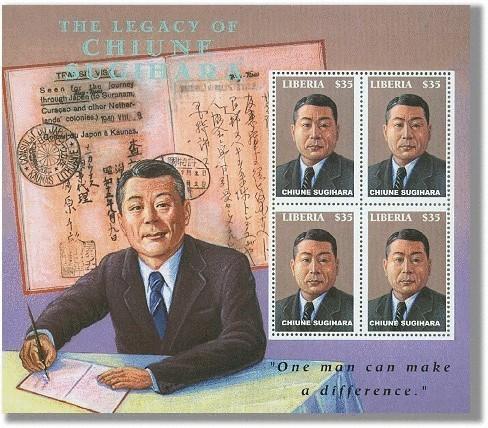
What surprised the neighbors In the second half of the 1960s the Polish military historians were looking for a Japanese diplomat in the beginning of the Second world war saved a few banners of the Polish army and sent them to Stockholm. Searched for it, and the former Jewish refugees, one of which was by that time Minister of religious Affairs of the state of Israel. The government of Japan on all requests persistently replied that a person by the name of Tiune Sugihara does not exist.
And yet it is found in Moscow, in 1967. in 1969, Sinpo Sugawara family visited Israel and became the owner of a lifelong Israeli visa. But in 1985, the government of Israel awarded him the title of "righteous among the Nations" — the same what are Irena Sendler, Oskar Schindler, Raoul Wallenberg. The former Japanese Consul was by this time too weak to go to the awards ceremony. For him, Israel went wife and son.
Tune, Sugihara died on July 31, 1986 at his home in Fujisawa. The neighbors were very surprised when at the funeral the invisible man suddenly arrived Israeli Ambassador to Japan.
Now, Tiune Sugihara awarded the state awards of Lithuania and Poland. In Lithuania, the USA, and also in the campus of a Japanese University Waseda him standing monuments. About him shot several documentaries and feature films.
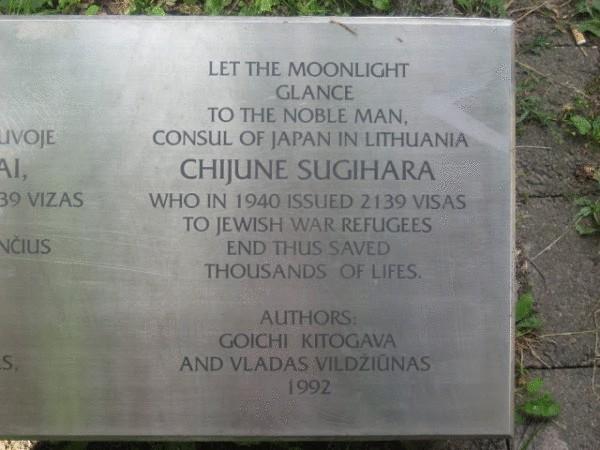
Once the former Japanese Consul asked about the reasons for his action. And he said, "I was sure that doing the right thing. In saving many lives there's nothing wrong. The spirit of humanity, philanthropy... neighborly friendship — it is in these senses lies the reason I have continued with renewed courage".
Tune, Sugihara has always been on his own. published
Author: Daria Periodic
P. S. And remember, just changing our mind, we together change the world! ©
Source: www.pravmir.ru/o-russkom-yapontse-i-tyisyachah-spasyonnyih-zhizney/

A little stubborn, Tiune Sugihara was born on the first of January, 1900. He was the second son in the family physician of the Japanese town Yaozu. Besides, it grew four more brothers and a little sister. It is obvious that the main way to survive for Japanese from a poor but prolific family was one – to get an excellent education and make a successful career. And until then it seemed that little Tune this rule is followed.
The boy graduated from elementary and then high school. The father insists that the Tiun became a doctor. It even send exams to the medical College. But a little stubborn them brilliantly... fails. After serving the allotted time for the party, he just rents the teachers signed your name to a blank sheet.
Tina want to study European culture. He entered the University Vaseda at the Department of English literature. However, it is the boy quarrel with his father. Devoid of any support, now he has to pay for his education himself. Forces to study and work simultaneously have Tune enough for a year.
But then fate gives a little stubborn strange chance.
Russia Ministry of foreign Affairs of Japan opens in Harbin Russo-Japanese Lyceum. At this time, Japan's active economic activities in China, constructing railroads. Interested in the Japanese and the Russian far East.

Sugihara in Harbin
So the Japanese government needed employees with knowledge of the Russian language. Need so much that decided to elect a new specialty it was ready to pay scholarships. So a poor student, Tina was a student of the Lyceum. So it became clear that its Europe – Russia.
This does not mean that Sugihara has ceased to be Japanese. He brilliantly graduated from the Lyceum, serving in the army, and then receives a distribution in the Japanese Ministry of foreign Affairs. In the early 1930s, when Japan annexed part of Manchuria, Sugihara it is negotiating with the Soviet Union on the purchase by Japan of the Chinese Eastern railway. And leads them so brilliantly that bargains for his country about a million dollars at the exchange rate at the time.
As a result, "nasty Japanese" gets even "pencil" to the Soviet authorities. Among other things, because a lot of deals in Harbin by Russians. In 1924, he even married the daughter of a white officer Claudia Apollonova. And the marriage lasted eleven years.
But one of the more strange his action Sugihara made just before the wedding. ... He converted to Orthodoxy.
Information about what name he was baptized, Tune vary. Most sources agree the name "Sergei Pavlovich," and adds that the priest of the Church Abroad, who baptized the Japanese name was father Paul.
On your baptism and told the second wife Sugihara – Japanese woman Yukiko that appeared in his life after Claudia Apollonova they decided to leave. Subsequently, Yukiko (baptized Maria) wife gave birth to four children and survived him for many years.

The Soviet Union: the first attempt it Seems that the life of the Japanese is getting better: post in the Japanese Embassy in Harbin, in the name of diplomacy, the important things. But all this time he deals with white Russians, and... creating orphanages for Chinese children left without parents after the Japanese invasion of China. Moreover, in protest against ill-treatment of prisoners of war in 1936, Tina resigns and returns to Japan.
However, for the government by this time he already is very valuable. And the world is gradually realize that in the near future will start another war. And to monitor its prospects of Japan need our own people in the Soviet Union. And such a person – with knowledge of Russian, and by that time, and German languages — she has.
In Japan, Tune waiting for a new assignment – a translator at the Japanese Consulate in Petropavlovsk-Kamchatskij, and then even in Moscow. And then the unexpected happens: in Moscow a diplomat... is not allowed, he just did not give a visa.
The Ambassador of Japan requires, for this reason an audience with the foreign Ministry and, oddly enough, receives it. How then receives the document, three pages were listed in detail the claims of the Soviet authorities to the Sugihara connection with the whites, Japanese intelligence (both were true) and "anti-Soviet mood" (so, obviously, interpreted his participation in the transaction by the CER).
In the end, instead of the Soviet Union, Sugihara was assigned to Finland, and in August 1939 a new – to Kaunas, then the capital of independent Lithuania. In Lithuania at that time there lived no Japanese and was not with Japan, no cultural ties. It is obvious that the main business owning the right languages, Tiona was to collect data about the situation in Europe. This he very successfully been doing, and later even called his leadership the exact date of the German attack on the Soviet Union.
However, on 15 June 1940 Lithuania became part of the Soviet Union. In July, the diplomatic representatives of third countries was proposed to leave the new Soviet territory. But Sugihara turns to the authorities, so he extended the period of stay in Kaunas for another month. And this month, he manages to carry out the main business of his life.

The main business of life I Must say that by the beginning of 1940 in Lithuania were many Jewish refugees. German troops attacked Poland, and most of the Jews had begun to understand that under German orders, their fate is unenviable. However, when from the East the territory began to join the Soviet Union, people are trapped.
To obtain the Soviet citizenship religious Jews were not in a hurry (and many of those who do decide to get it, was then sent to Siberia). Different countries, one after another refused them entry, so in the end, had to resort to complex combinations.
Was first found by a Dutch diplomat in exile, who still disposed of overseas territories. In particular, he agreed to give everyone a paper saying that to enter on the Dutch island of Cura? AO and Suriname do not need any visas. But without permission to get to them on the territory of the Soviet Union, and then Japan paper this was useless.
Then found the Soviet Consul, who also agreed to arrange a transit for everyone. It remained for the Japanese visa. The results of these documents would justify the presence of Sugihara in Lithuania, while the authorities have long insisted on his speedy departure.
The difficulty was that in the impending war, Japan became an ally of Germany. That is, the Japanese authorities had plenty of reasons not to allow anyone to leave Lithuania. And, of course, none of them were configured to host several thousands of refugees, which, of course, is not going to actually together to go to small Suriname.
Once at home would have known about the "documentary liberty" Consul, Sugihara risked to answer for them in full. But the family had by that time four children.
The Japanese diplomat, without a doubt, understand all of this and, as usual,... went on his own way. In August 1940, they were issued more than two hundred thousand Japanese transit visas.

Visa signed by Sugihara
According to the rules of that time, he discharged them from their hands. Sometimes on letterhead, sometimes on the half of the entry permits issued by the Dutch. When the forms ended, Sugihara wrote on clean sheets of paper. The whole month he wrote sixteen hours a day. And when the time is ended, he just left the consular seal to the window of his departing train. Picked her up.
Visa was issued on the family, so that the documents signed by Sugihara, Lithuania was able to leave, according to various estimates, from five to ten thousand people. Many of them then made it safely to America and Australia. These people were saved.
Downsizing the fate of the Japanese diplomat were much less successfully. From Kaunas, he went to Prague, then to Konigsberg. In the end, Sugihara finds himself in Bucharest, where he is arrested by the Soviet command. A year and a half, former Consul and his family spent in the camp for diplomats in Romania. Home, Tina gets only in 1947.
Japan surrendered at this time control of the US government. The country banned (and still is) to have its own army, diplomatic representatives no longer need it. In the end, Sugihara receives a letter of resignation from the foreign Ministry "for redundancy".
As a result the person, in whose hands was millions of dollars and the fate of the world, is taken over the random part of the tutor and the interpreter, sells light bulbs Hawking. At the same time, the couple bury one of his sons.
In the end, Sugihara, who for the sake of this I had to change the documents and now read his name as Sugiwara, gets the job done in the representation of private company in Moscow. The company sells Japanese sewing machines, nylon and BolognaFiere cloaks.
Sugihara did not know that all this time he stubbornly looking for...

What surprised the neighbors In the second half of the 1960s the Polish military historians were looking for a Japanese diplomat in the beginning of the Second world war saved a few banners of the Polish army and sent them to Stockholm. Searched for it, and the former Jewish refugees, one of which was by that time Minister of religious Affairs of the state of Israel. The government of Japan on all requests persistently replied that a person by the name of Tiune Sugihara does not exist.
And yet it is found in Moscow, in 1967. in 1969, Sinpo Sugawara family visited Israel and became the owner of a lifelong Israeli visa. But in 1985, the government of Israel awarded him the title of "righteous among the Nations" — the same what are Irena Sendler, Oskar Schindler, Raoul Wallenberg. The former Japanese Consul was by this time too weak to go to the awards ceremony. For him, Israel went wife and son.
Tune, Sugihara died on July 31, 1986 at his home in Fujisawa. The neighbors were very surprised when at the funeral the invisible man suddenly arrived Israeli Ambassador to Japan.
Now, Tiune Sugihara awarded the state awards of Lithuania and Poland. In Lithuania, the USA, and also in the campus of a Japanese University Waseda him standing monuments. About him shot several documentaries and feature films.

Once the former Japanese Consul asked about the reasons for his action. And he said, "I was sure that doing the right thing. In saving many lives there's nothing wrong. The spirit of humanity, philanthropy... neighborly friendship — it is in these senses lies the reason I have continued with renewed courage".
Tune, Sugihara has always been on his own. published
Author: Daria Periodic
P. S. And remember, just changing our mind, we together change the world! ©
Source: www.pravmir.ru/o-russkom-yapontse-i-tyisyachah-spasyonnyih-zhizney/
To be or to seem?
Bladeless turbines: a more economical method for the production of electricity from wind


